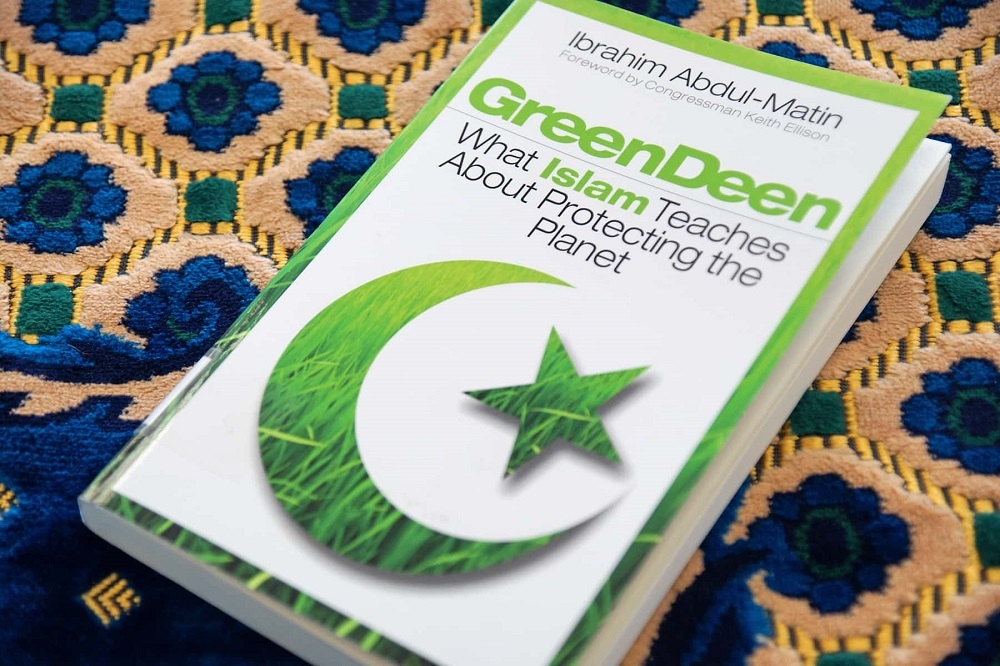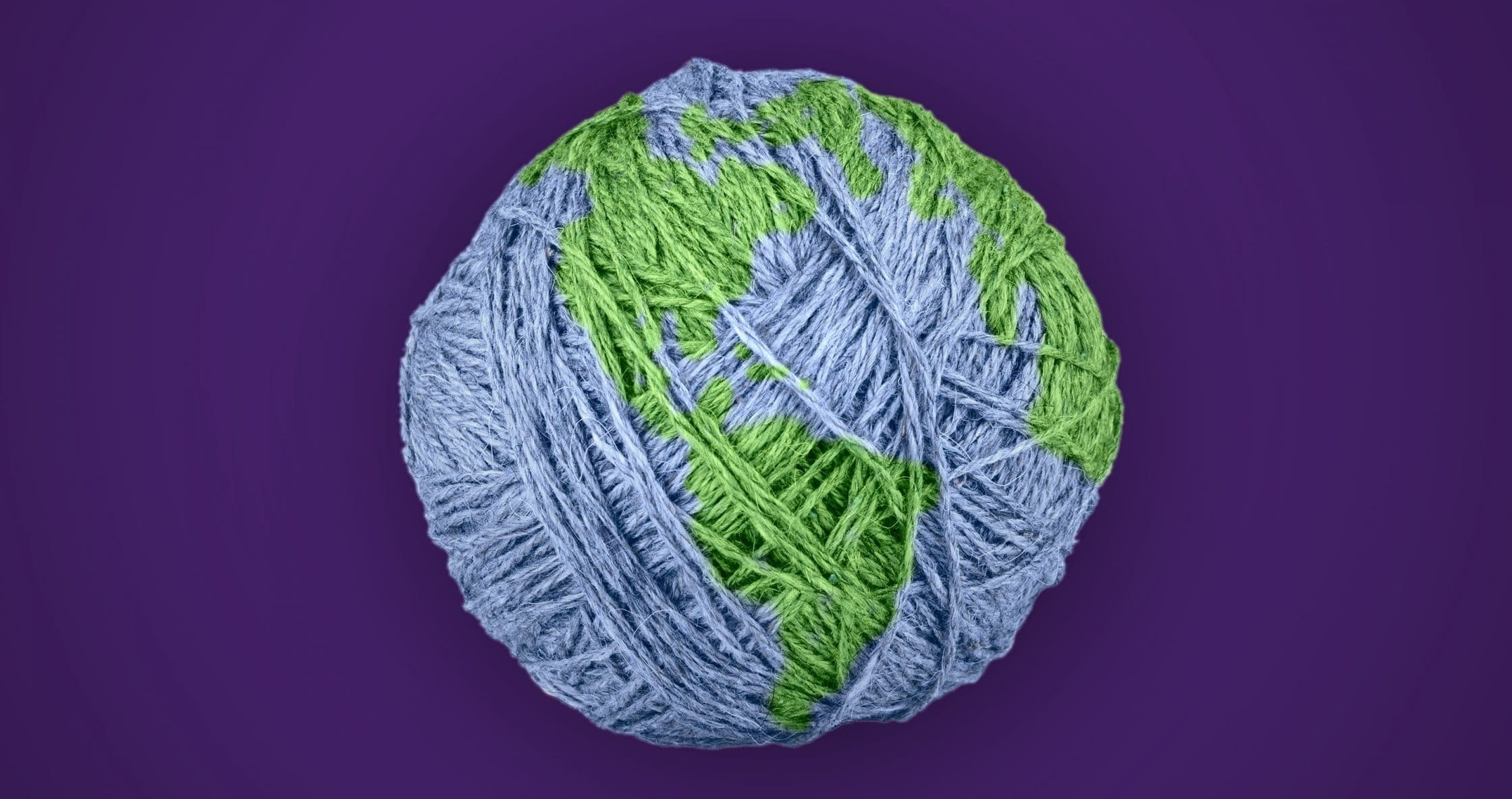The Timeless Legacy of 'The Green Deen,' an Exploration of Islam and Environmentalism
Lifestyle
|
Jan 19, 2024
|
4 MIN READ

Image source: Pexels; photo by Arthur Ogleznev
In a world where environmental consciousness has become increasingly essential, the wisdom of Islamic teachings about caring for the Earth has never been more relevant. Rooted in a profound sense of stewardship, Islamic principles encourage believers to be responsible custodians of the planet.
Within this context, The Green Deen: What Islam Teaches about Protecting the Planet by the late Ibrahim Abdul Matin emerged as a groundbreaking work, merging Islamic values with ecological wisdom. Despite the tragic loss of Matin in 2023, his legacy lives on, reminding us of the urgent need to heed these teachings and integrate them into our lives. So, even though Matin’s seminal book was published nearly 15 years ago (and even though we tend to focus on issues about and the work of Muslim women here on this blog), we thought it important to revisit this book and his work as we head into 2024 with the utmost urgency of our planet’s health and future.
As we delve into the profound message of The Green Deen, it's crucial to confront the grim reality of climate change. The impact of climate change is undeniable, with rising global temperatures, more frequent and severe weather events and a cascade of environmental consequences. As Muslims and as inhabitants of this planet, we are not immune to its effects.
Rising sea levels threaten coastal communities, droughts disrupt food security and extreme heat waves endanger lives. The numbers are alarming, with one report indicating that by 2050, more than 200 million people may be forced to migrate due to climate change. This is a critical issue for Muslims and humanity as a whole. Our faith teaches us to be stewards of the earth, and addressing climate change is not just an environmental concern but a moral obligation.

Image source: Wisconsin Muslim Journal
The Green Deen and the work of dedicated environmentalists like Matin remind us that the time for action is now. We must unite in our efforts to combat climate change, not only for the sake of our planet but also for the well-being and justice of all its inhabitants.
In this book review, we will delve into the timeless significance of The Green Deen and the enduring impact of Matin's insights on the intersection of faith, environmentalism and social justice.
Ibrahim Abdul Matin, an author and advocate for environmental justice, left a mark with his book. Originally published in 2010, The Green Deen highlights the intersection of faith and environmentalism. Matin's unique perspective blended Islamic teachings with ecological wisdom, bridging spirituality and sustainability in an approachable way for Muslims and non-Muslims.
He writes, “In the Quran, we are reminded that everything in the heavens and on Earth belongs to God. We are simply caretakers of this divine trust.” Matin's words remind us that environmentalism is not merely a secular concern but an intrinsic part of our faith, calling us to protect and cherish the planet as an act of worship.
One of the book's standout features is its ability to deliver a profound message with clarity and conciseness. This quality resonates with those working for a racial equity nonprofit. In the pursuit of racial justice, there is a need for clear, direct and actionable solutions to address systemic inequalities and environmental injustices that disproportionately affect marginalized communities. Matin's book offers a concise roadmap for integrating environmental justice into the broader framework of social equity, aligning with the goals and values of those committed to advancing racial equality.
Its direct and accessible approach ensures that the message of environmental responsibility and justice can be effectively communicated and implemented within racial equity work.

Image source: Pixabay
Matin explores the intersection between Islamic teachings and environmental stewardship. He conveys essential messages that will resonate with readers, making it a compelling read for individuals seeking to deepen their understanding of faith, sustainability and social responsibility.
The chapters of this book tackle various aspects of environmentalism through an Islamic lens. Matin establishes the spiritual connection between humanity and the natural world, emphasizing that everything on Earth belongs to Allah (S) and that humans are entrusted with its care. He explores the concept of tawheed, the Islamic principle of the oneness of God, and how it extends to the interconnectedness of all living beings and ecosystems. Matin further delves into practical guidance on sustainable living, drawing from Islamic traditions and ethical principles.
Key messages from The Green Deen are deeply rooted in the idea that environmental stewardship is not just a duty, but an integral part of the Islamic faith. It emphasizes that sustainability and social justice are inseparable, highlighting the disproportionate impact of environmental degradation on marginalized communities. The book also challenges the prevailing notion of consumerism and encourages readers to adopt a more mindful and minimalist approach to consumption.
Matin's writing style in The Green Deen is direct and concise, making it an accessible resource for anyone interested in understanding environmental stewardship's ethical and moral dimensions. His untimely passing in 2023 was a tragic loss to the Muslim community. However, Matin’s legacy lives on through his impactful writings, especially The Green Deen, which inspires individuals and organizations dedicated to creating a more equitable and sustainable world.
The Green Deen significantly contributes to Muslim environmentalism, solidifying Matin’s place alongside other influential Muslim environmentalists, like Nana Firman and Fazlun Khalid. Matin has enriched the discourse on the intersection of Islamic values and environmental stewardship through his work, inspiring a new generation of eco-conscious individuals within the Muslim community and beyond.
The Green Deen remains a must-read for those who seek to explore the interconnectedness of spirituality, environmentalism and social justice. Matin's work transcends time, reminding us that our actions have consequences not only on our planet but also on the well-being of all its inhabitants. This book is a testament to the enduring power of ideas and the lasting impact of visionary authors like Ibrahim Abdul Matin.
Subscribe to be the first to know about new product releases, styling ideas and more.
What products are you interested in?

